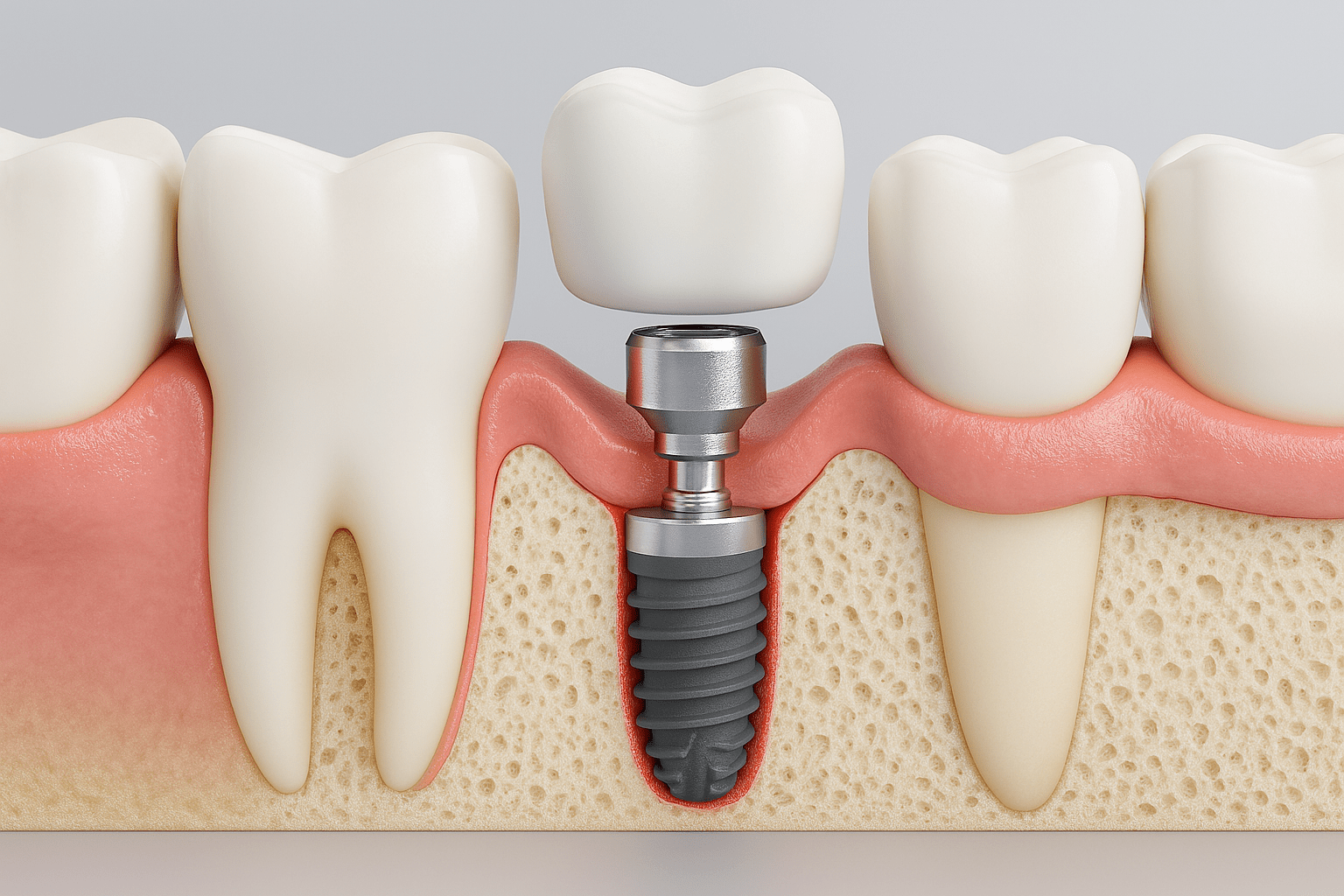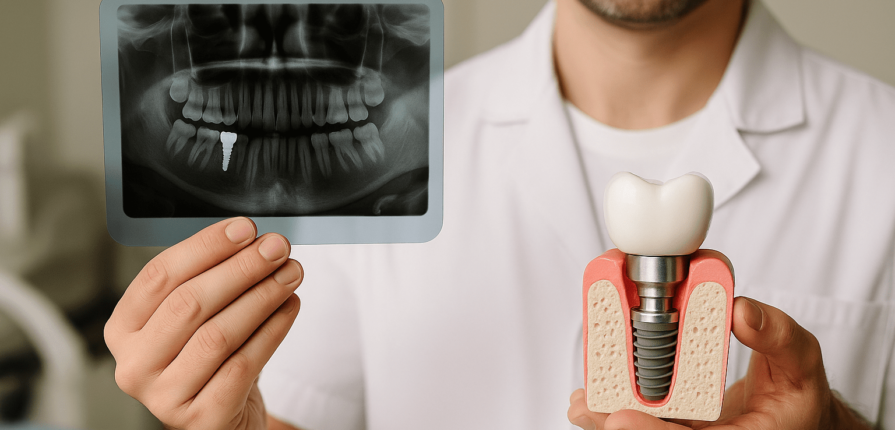For adults affected by missing teeth, dental implants serve as a restorative option that is both permanent and aesthetically pleasing. However, if you have underlying health issues like diabetes or heart disease, questions such as “Are dental implants safe for diabetes patients?” or “Can heart patients get dental implants?” may arise.
The good news is—yes, many people with chronic conditions can still benefit from dental implants. With proper planning and coordination between your dental surgeon and medical providers, implants can be a safe and successful solution.
Understanding Dental Implants
Dental implants are small titanium posts surgically placed in the jawbone to replace missing teeth. They function as artificial tooth roots and support crowns, bridges, or dentures for long-lasting restoration. While the procedure is widely considered safe, successful healing depends on your body’s ability to recover from surgery and integrate the implant into the bone, a process known as osseointegration.

Dental Implants for Diabetics
One of the most common concerns is whether it’s safe to get dental implants with diabetes, especially Type 2 diabetes.
Are Dental Implants Safe for Diabetes Patients?
Yes, dental implants are safe for most patients with well-managed diabetes. Research shows that people with controlled diabetes have nearly the same success rates as non-diabetic individuals when it comes to dental implants.
Success Rate of Dental Implants in Controlled Diabetes
Patients with controlled Type 2 diabetes see success rates of 93–97%, which is nearly identical to the general population. However, if diabetes is poorly controlled, the risk of complications increases significantly.
Risks to Be Aware Of
- Higher Risks if Unmanaged: Poorly controlled diabetes increases the risk of post-operative infection, slows recovery, and raises the chance of implant failure or peri-implantitis (inflammation around the implant).
- Success Rates: Well-controlled type 2 diabetics see implant survival rates ranging from 93-97%, similar to the general population. Poor control can reduce these rates.
- Special Considerations:
- Greater success if blood sugar is stable before and after surgery.
- Regular monitoring and coordination with your doctor are essential.
What Your Dentist Will Do
- Obtain authorization from your primary care physician or fellow specialists
- Assess levels of HbA1c to evaluate the potential for recovery
- Plan regularly scheduled appointments aimed at monitoring recovery.
If you have diabetes and are looking to get dental implants, discuss with your dentist your medications, glucose levels, and general health so that a tailored approach can be developed to ensure maximum benefit and minimized risk.
Dental Implants for Heart Patients
Are Dental Implants Safe for Cardiac Patients?
Yes when properly managed, dental implants are safe for heart patients. Pre-operative planning is key to ensuring a safe and smooth procedure.
Dental Implants on Blood Thinners
Patients on aspirin, warfarin, or other anticoagulants may require temporary dosage adjustments. Your cardiologist will guide your dental team on the best course of action.
Good Candidates Include:
- Patients with stable heart conditions
- Those taking beta blockers and statins
- People who are cleared by a cardiologist.
What to Consider:
- Blood thinners like aspirin and warfarin may require dosage changes prior to surgery.
- Patients with certain heart valves may need to take antibiotics before invasive procedures to mitigate the risk of bacterial infections.
- Anxiety and stress should be kept in check as they may lead to elevated blood pressure levels.
How Dentists Ensure Safety
- Collection of full medical history.
- Communication with your cardiologist or primary care physician.
- Stress management techniques during your appointment.
- Avoiding lengthy appointments or consolidating them as required.
If you are a heart patient anxious about surgery, do not worry: with the proper planning and collaboration between the dental and medical teams, dental implants are safe for heart patients.
Are You a Good Candidate for Dental Implants?
You could be a good candidate if:
- You have a well-managed chronic medical condition.
- You practice good oral hygiene.
- You do not smoke or are willing to remain smoke-free during recovery.
- You have adequate jawbone density or are willing to undergo bone grafting.
Even if you were previously told you’re not a candidate, there have been recent advances in implant technology and medical guidelines that facilitate a more inclusive approach to patients with complicated medical histories.
Having diabetes or heart disease does not automatically disqualify you from getting dental implants. Whether you’re managing your blood sugar or taking medications for your heart, implants can still be a life-changing solution.
If you’re considering dental implants for heart patients or diabetics, book a consultation with our expert team. We will work alongside your healthcare providers to design a treatment plan that prioritizes your safety and well-being.


